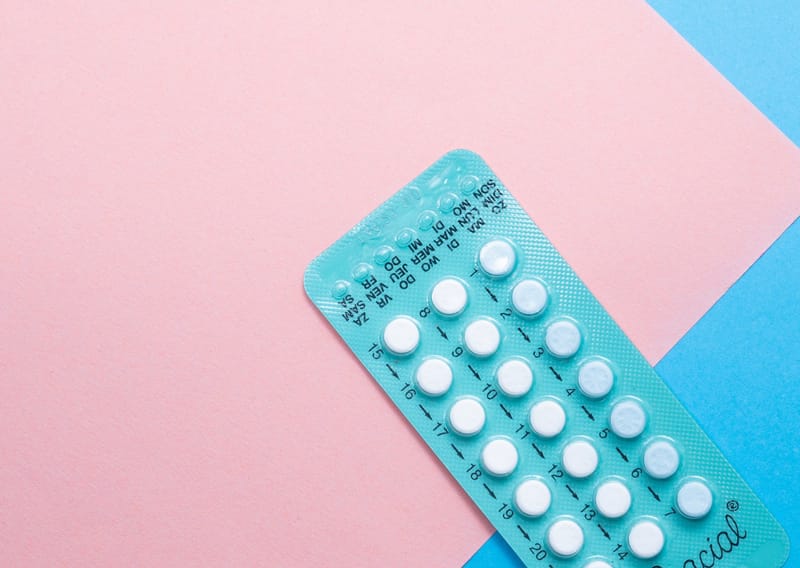Sex Hormone -Infertility Test -Females

INFERTILITY & SEXUAL DYSFUNCTION-FEMALE
Question 1. What is the basis of blood testing?
Just as in males, female sexuality and fertility is a complex interplay of various hormone systems in our body and our nervous system. They influence health and activity of structural elements of sexual organs including uterus (womb), fallopian tubes, ovaries, and local vaginal and cervical environment, and breast development. Some of these hormones include follicular stimulating hormone (FSH), luteinizing hormone (LH), progesterone, oestrogen, prolactin, thyroid hormones, testosterones, and adrenal gland hormones (DHEAS, cortisol).
For example, LH and FSH is produced from pituitary gland and help ovaries to develop eggs for fertilization and produce oestrogen and progesterone. Progesterone and oestrogen in turn assist development of womb to prepare for implantation and development of fertilised egg and prepare vaginal and cervical environment for sperm transport. The hormonal changes in females that lead to release of an egg or ovulation occurs only once every month and in some disorders this may be the cause of infertility. See investigation for ovulation and how this is done.
Any imbalance in sex hormones and other hormones will affect egg development, structural problems of ovaries, tubes and wombs, vaginal and cervical environment and hence cause fertility problems, menstruation disorders and sexual difficulties. For example, excess prolactin causes inhibition of FSH and LH and hence, release of eggs from ovaries and cause infertility, high oestrogen relative to progesterone will cause irregular menstrual disorder (heavy bleeding).
By measuring these hormones, your doctor can diagnosis cause of your sexual problem or infertility along with other non-blood test reports such as ultrasound and hysterosalpingogram together with clinical history.
Question 2. What blood Tests are available?
Most laboratories will provide tests for FSH, LH, prolactin, testosterone (T), estradiol (E2), progesterone (P4), Free T4, TSH, testosterone and cortisol at the same time. It is important to perform all tests the same time for better interpretation of test.
Question 3. How is the tests done?
Sex Hormone tests are measured from a small sample of blood taken in the arm. A small blood sample of about 5-10mls is taken. No special preparation is required. Often this is done together with other basic chemistry tests including kidney, liver, diabetes, gout, calcium and cholesterol.
Question 4. How is the result reported?
Blood Test results are reported as values against a reference value of population of healthy individuals and your menstrual cycle. Your doctor will correlate your report with findings of examination an other non-blood tests to make an appropriate diagnosis and offer treatment advice. Possible problems picked-up on blood testing include hypothyroid (low fT4, high FSH), hyperthyroid (high fT4, low TSH), brain tumour (high prolactin), primary ovarian failure (low oestrogen & progesterone, high FSH & LH), adrenal gland tumour (high testosterone+ excessive body hair), low cortisol (Addison’s disease), high cortisol (Cushing's syndrome) and polycystic Ovarian syndrome (high LH>FSH).
Question 5. What other non-blood tests are available?
Other non-blood test include hysterosalpingogram (HSG) and laparoscopy. HSG assesses anatomy of the endometrial cavity of the uterus and the fallopian tubes between days 6 and 13 of the cycle - this also depends on the specifics of the woman's normal cycle. Laparoscopy is a surgical procedure and is not performed until the basic testing has been done on both partners.
Question 6. What if my result is abnormal?
You should see your doctors to assist you in interpreting your results and discuss options for treatment or additional tests. This is just one of the batch of investigations your doctor will perform help diagnose your problem.
Question 7. What treatments are available for infertility or sexual problems?
Various treatment options with be available depending on specific cause. This may include medical/drug treatment, surgery or psychological counselling. Discuss with your doctor.
Question 8. I am worried that my results will be known by other people.
All laboratories are required by ethnics of medical practise and law to maintain patient confidentiality. Your results are only known to you and no one, not even your spouse and family will know your result without your permission. Testing staff are trained to keep patient confidentiality at all times. If you feel that this confidentiality is bridged by any staff member do not hesitate to contact the management of the centre.
Question 9. Who should be tested?
All women with the following should have their hormones tested?
Heavy/Excessive Periods
Intermittent Vaginal Bleeding
Infertile after 2 years of unprotected sex
Recurrent abdominal Pain
Breast Discharge
Recurrent Miscarriages
Excess Facial/Body Hair
Post-menstrual symptoms
Delayed Puberty
Excess Vaginal dryness
Painful intercourse


